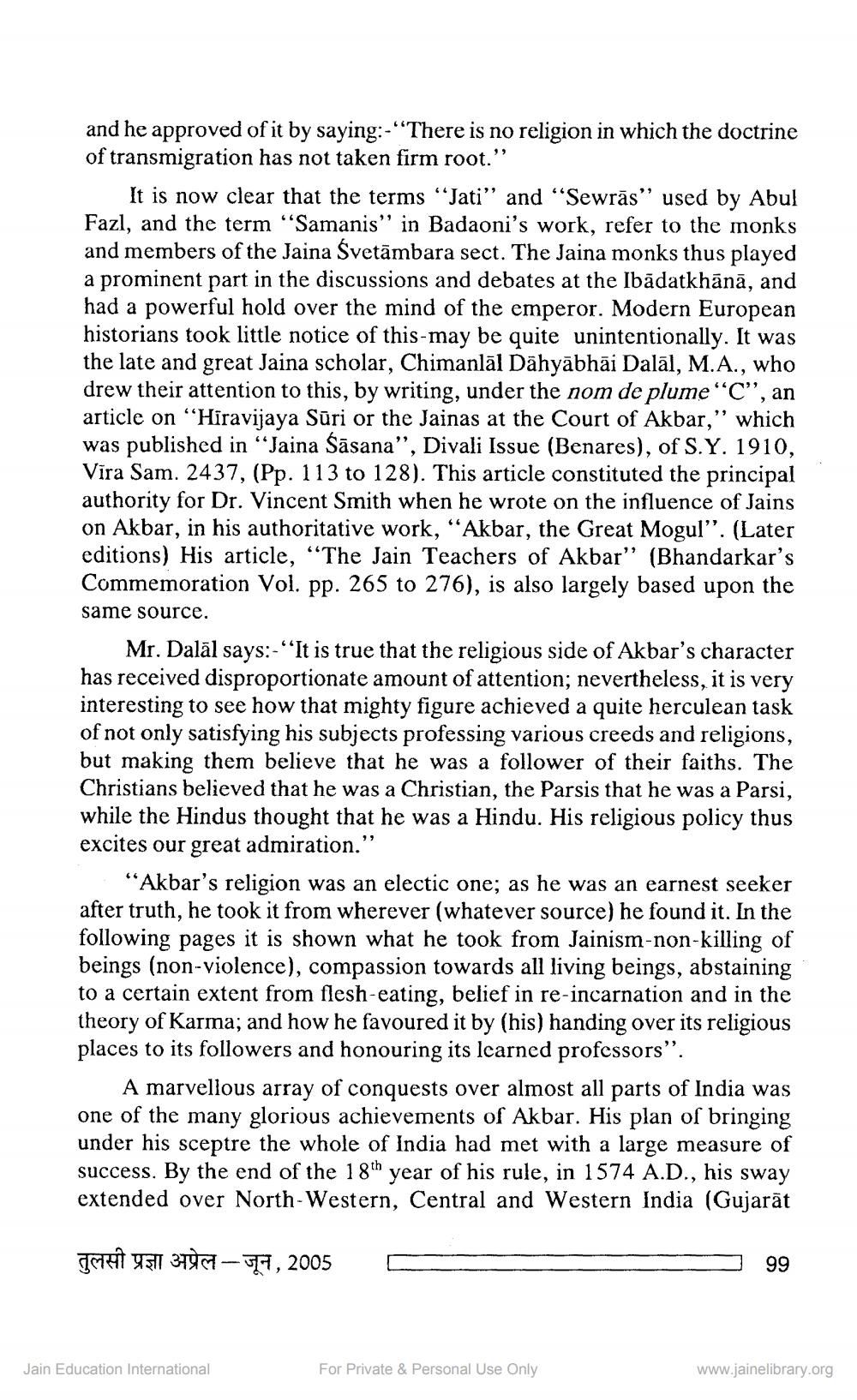________________
and he approved of it by saying:-"There is no religion in which the doctrine of transmigration has not taken firm root.”
It is now clear that the terms "Jati” and “Sewrās” used by Abul Fazl, and the term “Samanis” in Badaoni's work, refer to the monks and members of the Jaina Svetāmbara sect. The Jaina monks thus played a prominent part in the discussions and debates at the lbādatkhānā, and had a powerful hold over the mind of the emperor. Modern European historians took little notice of this may be quite unintentionally. It was the late and great Jaina scholar, Chimanlāl Dāhyābhāi Dalāl, M.A., who drew their attention to this, by writing, under the nom de plume "C", an article on “Hiravijaya Sūri or the Jainas at the Court of Akbar," which was published in “Jaina Sāsana", Divali Issue (Benares), of S.Y. 1910, Vira Sam. 2437, (Pp. 113 to 128). This article constituted the principal authority for Dr. Vincent Smith when he wrote on the influence of Jains on Akbar, in his authoritative work, “Akbar, the Great Mogul”. (Later editions) His article, “The Jain Teachers of Akbar” (Bhandarkar's Commemoration Vol. pp. 265 to 276), is also largely based upon the same source.
Mr. Dalāl says:- “It is true that the religious side of Akbar's character has received disproportionate amount of attention; nevertheless, it is very interesting to see how that mighty figure achieved a quite herculean task of not only satisfying his subjects professing various creeds and religions, but making them believe that he was a follower of their faiths. The Christians believed that he was a Christian, the Parsis that he was a Parsi, while the Hindus thought that he was a Hindu. His religious policy thus excites our great admiration."
“Akbar's religion was an electic one; as he was an earnest seeker after truth, he took it from wherever (whatever source) he found it. In the following pages it is shown what he took from Jainism-non-killing of beings (non-violence), compassion towards all living beings, abstaining to a certain extent from flesh-eating, belief in re-incarnation and in the theory of Karma; and how he favoured it by (his) handing over its religious places to its followers and honouring its learned professors”.
A marvellous array of conquests over almost all parts of India was one of the many glorious achievements of Akbar. His plan of bringing under his sceptre the whole of India had met with a large measure of success. By the end of the 18th year of his rule, in 1574 A.D., his sway extended over North-Western, Central and Western India (Gujarāt
que 4511 37067 - 577, 2005
C
-
99
Jain Education International
For Private & Personal Use Only
www.jainelibrary.org




